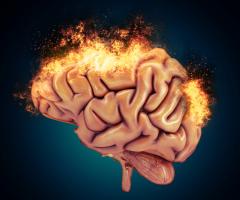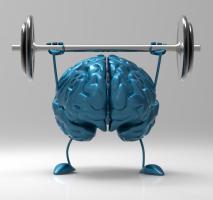
 Everyone has memory lapses from time to time. You might not remember where you left your wallet or keys or you may have forgotten someone’s name. Most people don’t worry about this when they’re young, but as you grow older you may start to believe that something is going wrong with your brain. That’s because we’ve been led to believe that memory naturally declines with age. This simply isn’t true. Losing memory and cognitive power is not an inevitable part of the aging process. You are capable of producing new brain cells at any age, so there is no reason why your mental abilities have to decline as you grow older.
Everyone has memory lapses from time to time. You might not remember where you left your wallet or keys or you may have forgotten someone’s name. Most people don’t worry about this when they’re young, but as you grow older you may start to believe that something is going wrong with your brain. That’s because we’ve been led to believe that memory naturally declines with age. This simply isn’t true. Losing memory and cognitive power is not an inevitable part of the aging process. You are capable of producing new brain cells at any age, so there is no reason why your mental abilities have to decline as you grow older.
However, because a large percentage of people are experiencing memory loss as they grow older, it’s wise to figure out why this is happening and how you can avoid being part of the statistics. Memory lapses that do not adversely affect a person’s daily performance and ability to do what they want are not a cause for concern, but when there is a persistent, disabling decline in intellectual abilities it’s time to take note. Memory loss that becomes so pervasive and severe that it disrupts a person’s work, hobbies, social activities and family relationships, may be an early warning sign of dementia, Alzheimer’s disease or some other disorder involving cognitive decline.
Understanding Dementia and Alzheimer’s Disease
Dementia is a loss of cognitive and intellectual function, without the loss of perception. It is a syndrome, rather than a disease, which means it can have multiple causes. Symptoms include disorientation, impaired memory and judgment, and a loss of intellectual capacity.
Dementia is caused when brain cells get damaged. The damage can come from Alzheimer’s or Parkinson’s disease, with Alzheimer’s being the cause of between 50-70% of all cases. Dementia can also be caused by infections, cardiovascular disease, strokes and drug use.
Alzheimer’s is a progressive, degenerative disease of the central nervous system. In Alzheimer’s abnormal protein deposits form plaques in the brain, which causes neurons to lose their connections. There is no way to objectively diagnose Alzheimer’s while a person is alive, but doctors are about 90% accurate in assessing through symptoms. According to the Alzheimer’s Association, the people who are diagnosed with Alzheimer’s typically die within four to eight years. This makes Alzheimer’s the sixth leading cause of death in America according to the Center for Disease Control (CDC).
Alzheimer’s generally develops in old age. It afflicts about one out of nine Americans over 65 and about one out of three over the age of 85. Currently about 5.3 million Americans have Alzheimer’s disease and about 44 million people have it worldwide. It’s most common in Western Europe and North America and rare in less developed countries, which suggests it is associated with Western diets and lifestyles.
Most importantly, since there is no cure for Alzheimer’s, the best “cure” is to prevent it and other neurological disorders that can cause memory loss before they occur. So, that’s why we’re focusing on it in this issue of Sunshine Sharing.
Additional Resources
Smart Food: Diet and Nutrition for Maximum Brain Power by Arthur Winter and Ruth Winter
The Case Against Sugar by Gary Taubes
“Nutritional Strategies to Combat Alzheimer’s” by Liam Hawkins, Life Extension Magazine, March 2013
Strategies for Health by Steven Horne
Become a Member
Steven Horne's monthly member program is a way for you to get great information about herbs and natural healing to build your herbal business. Including the ability to share issues of Sunshine Sharing like this one. Click here to learn more.


